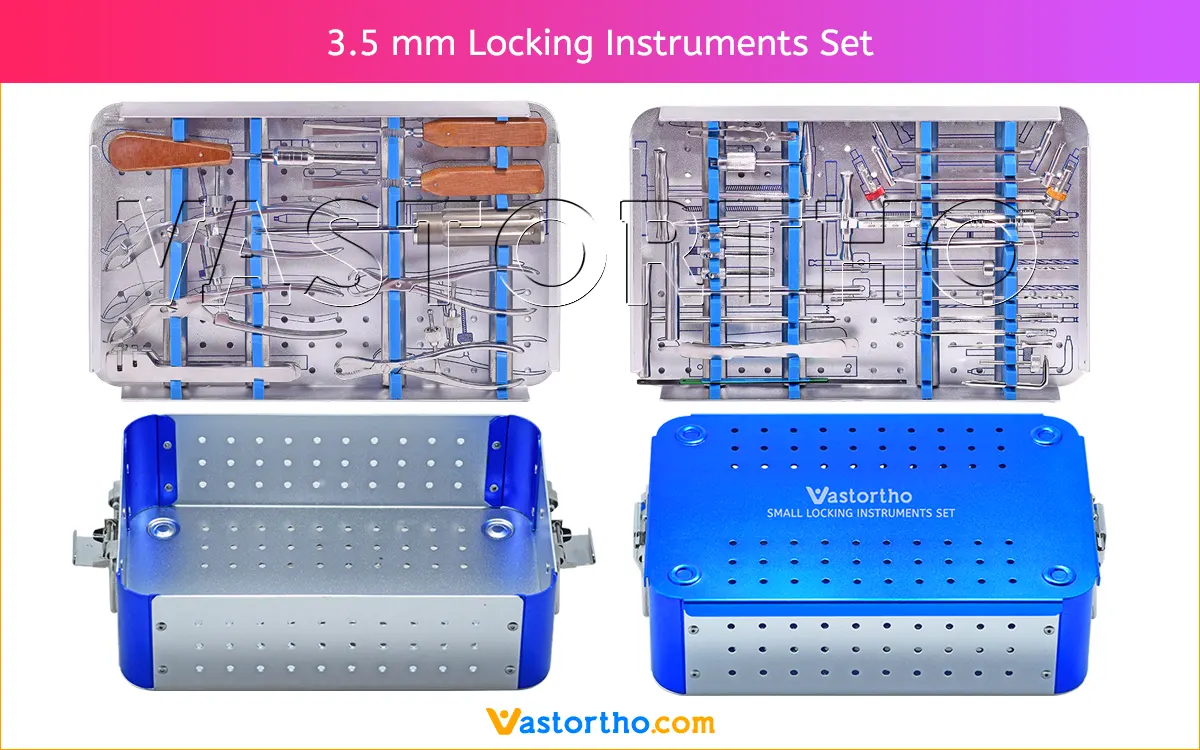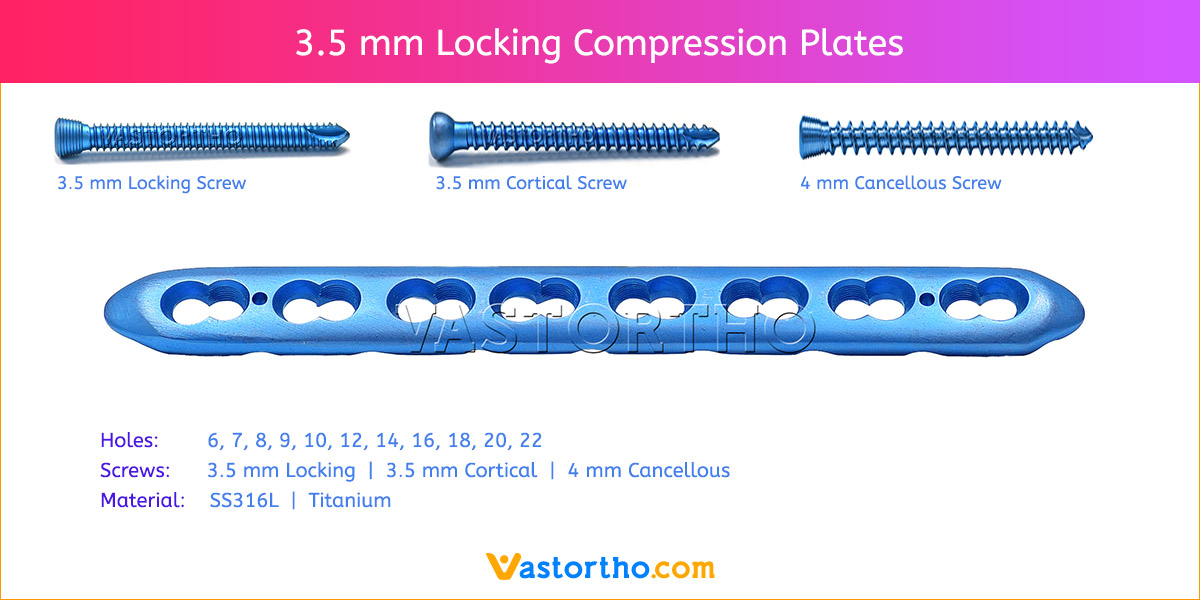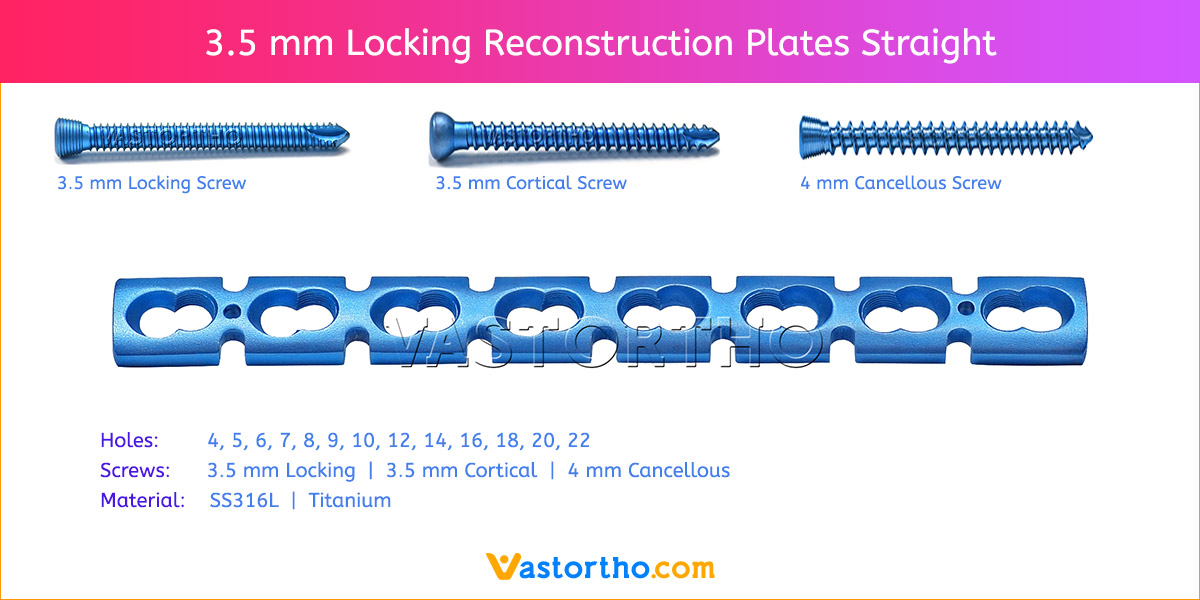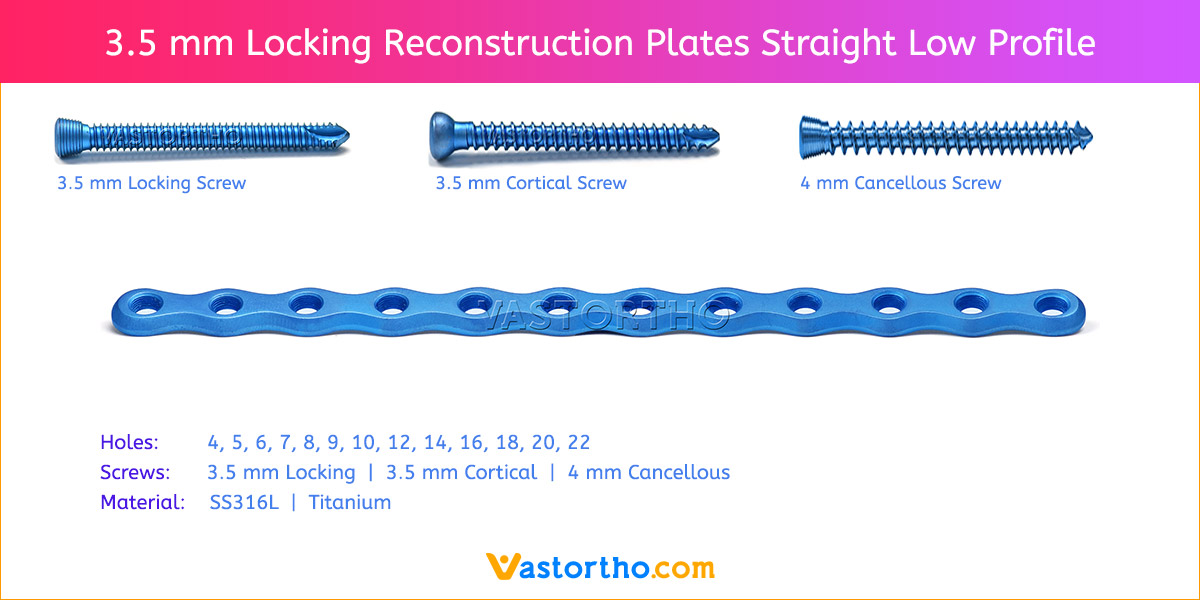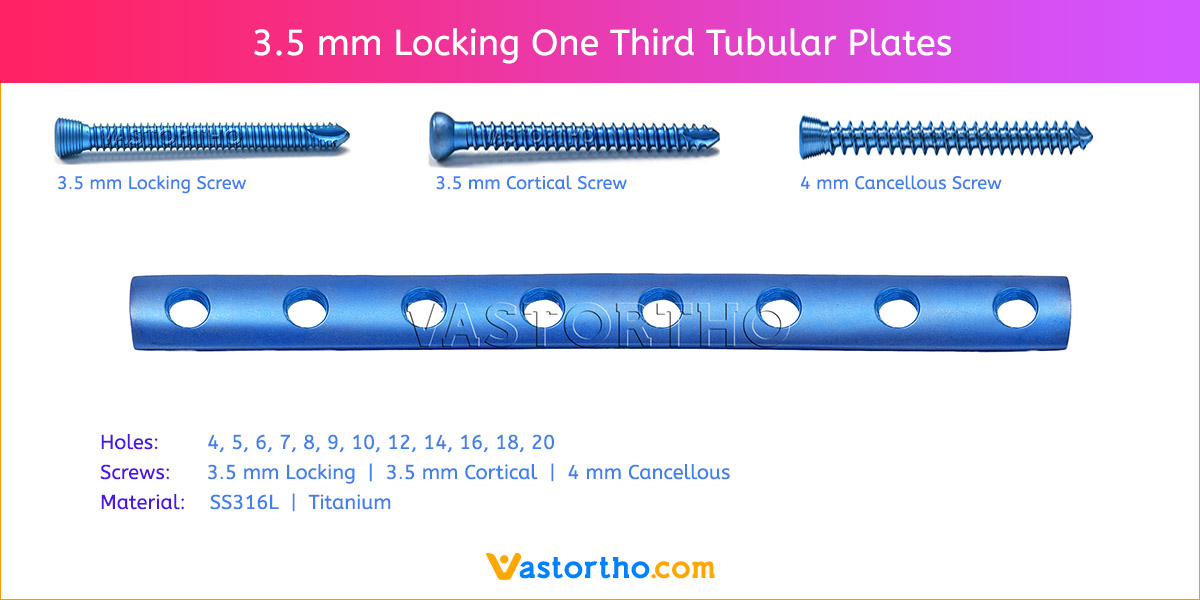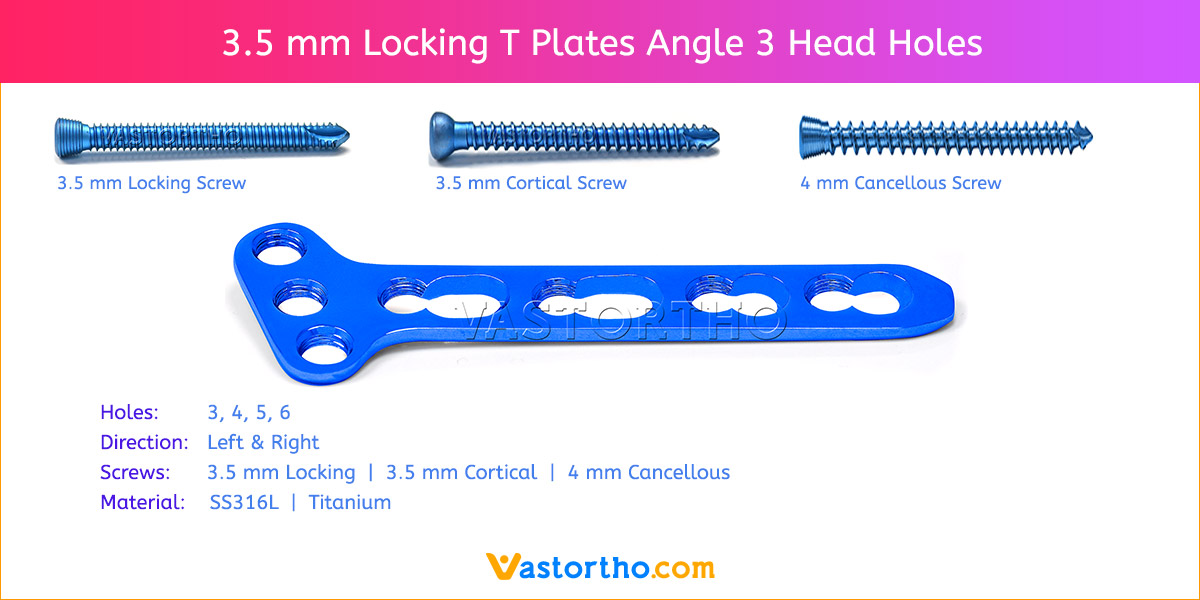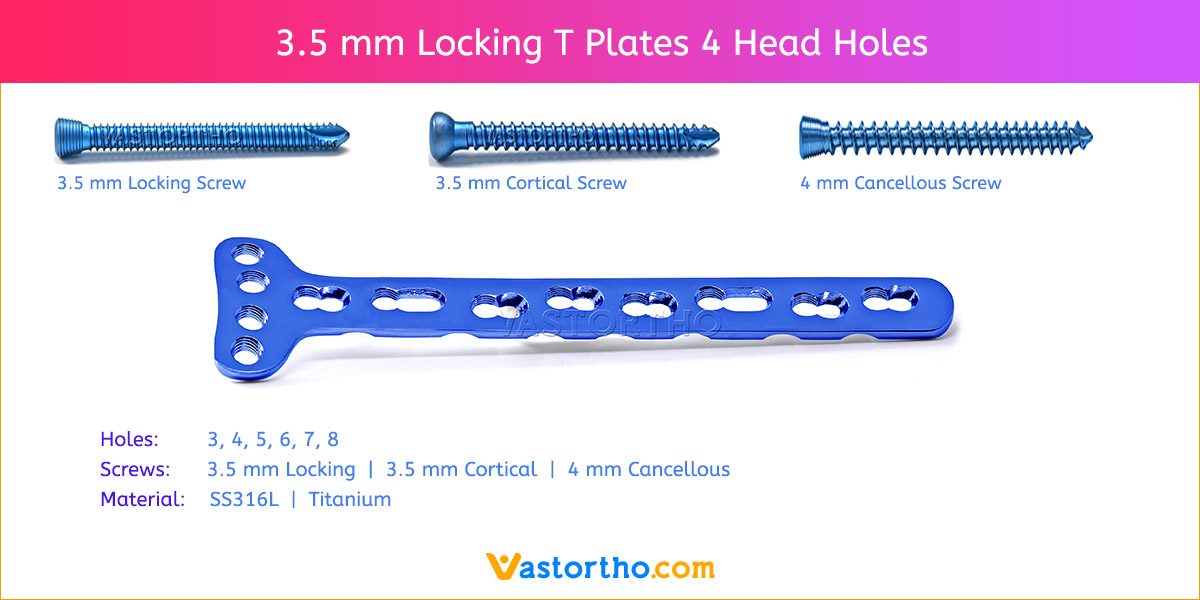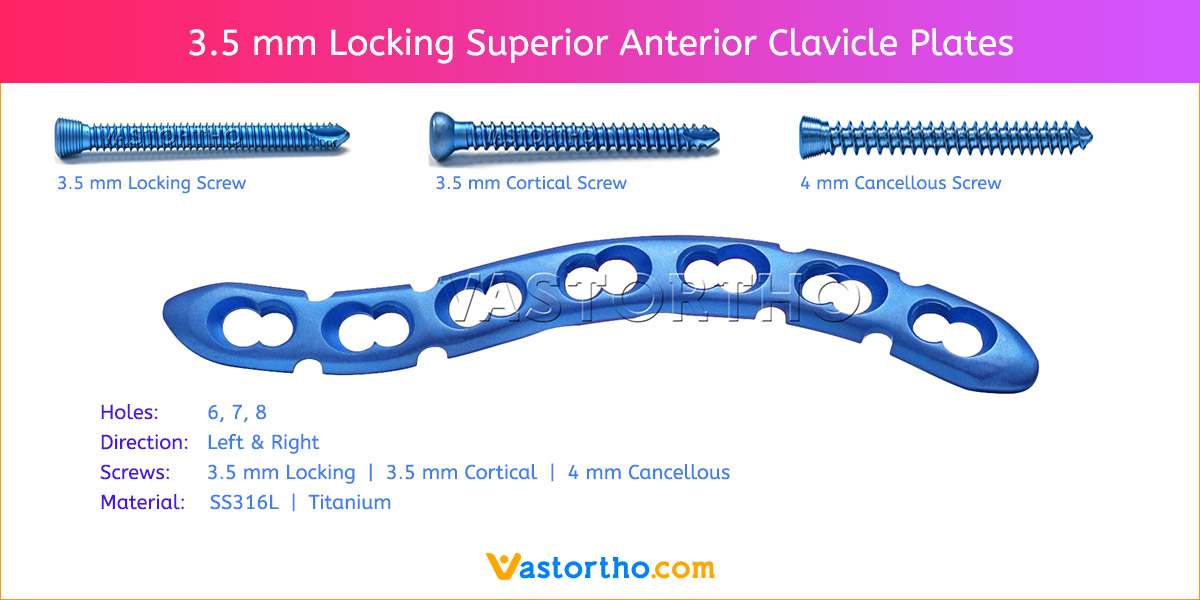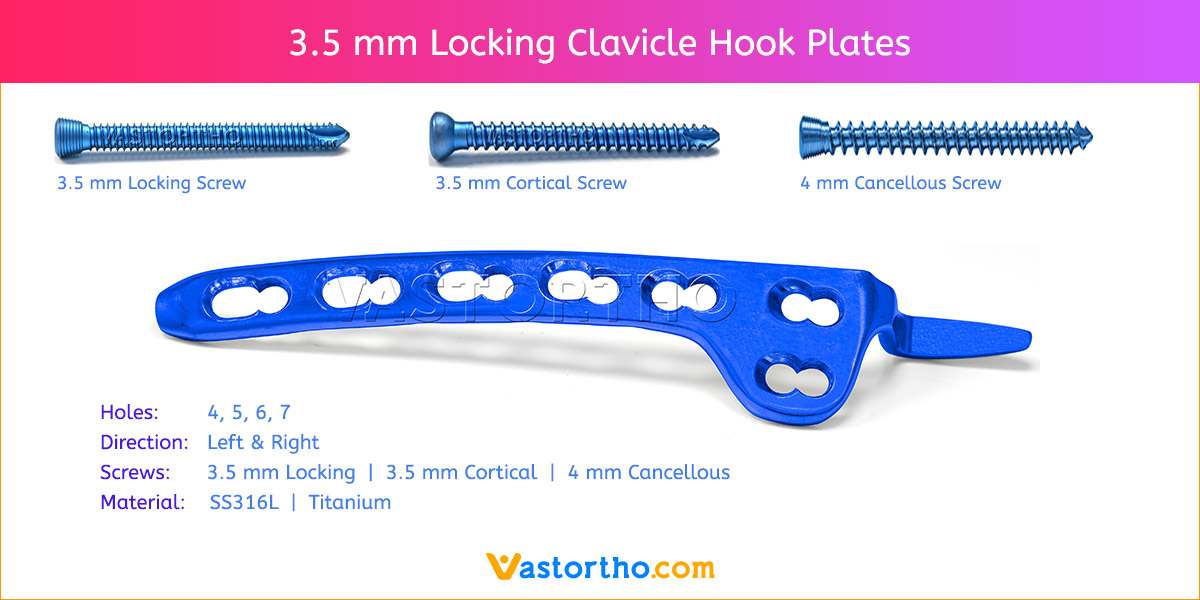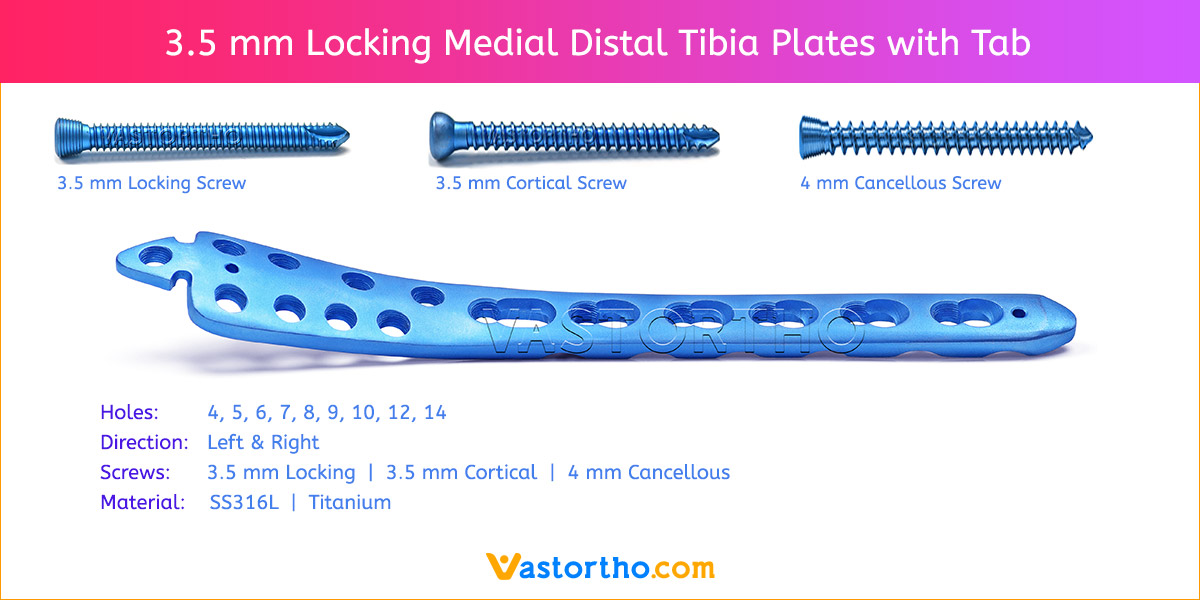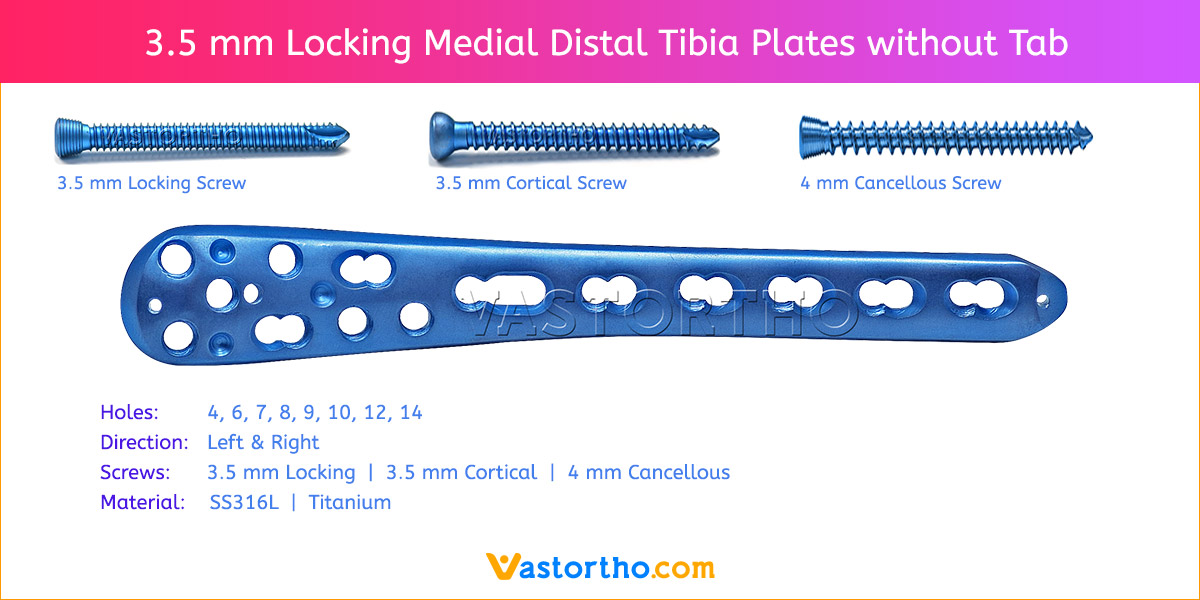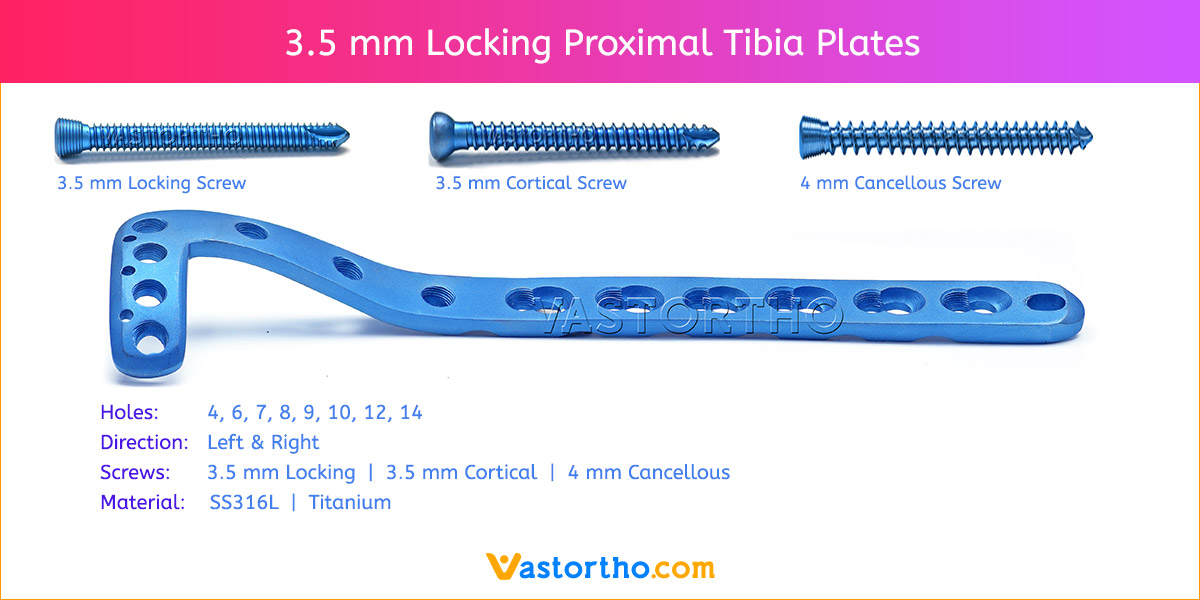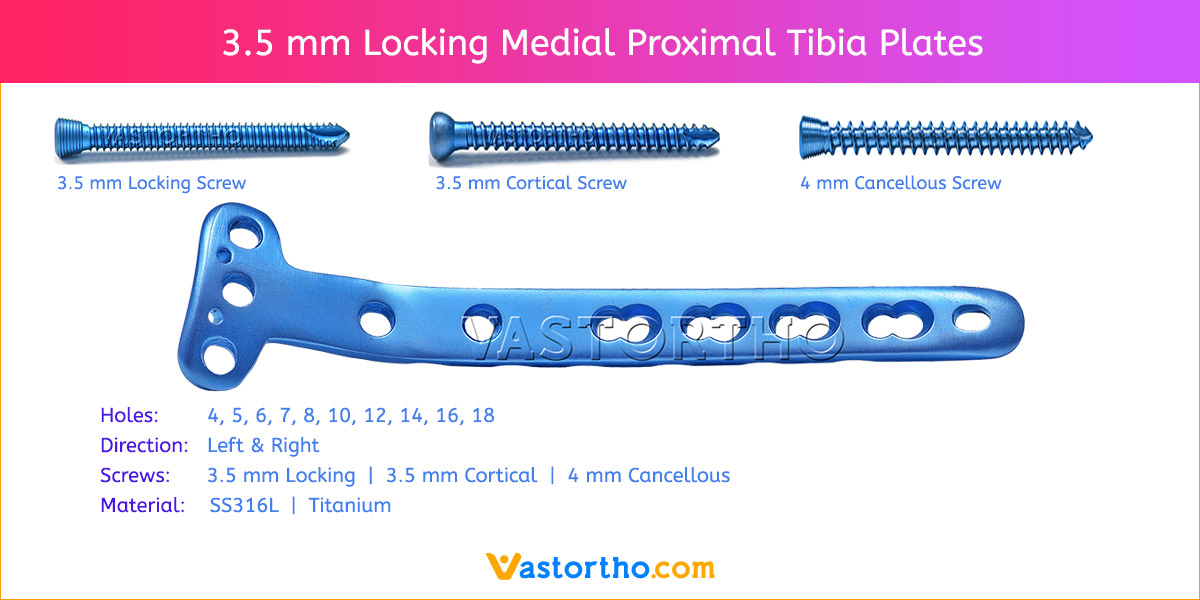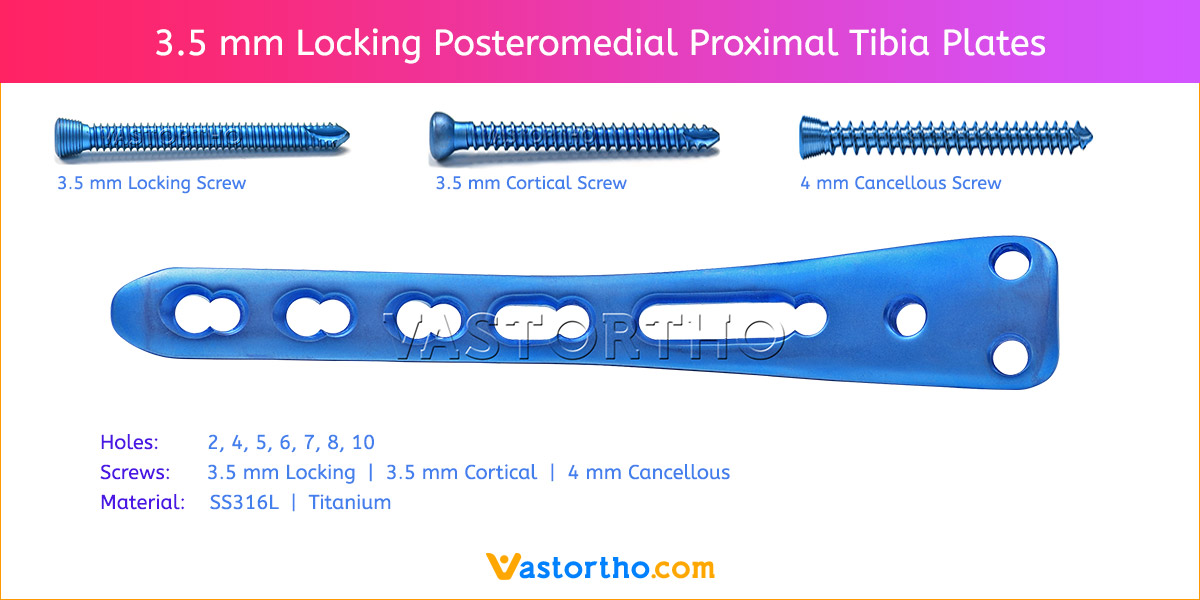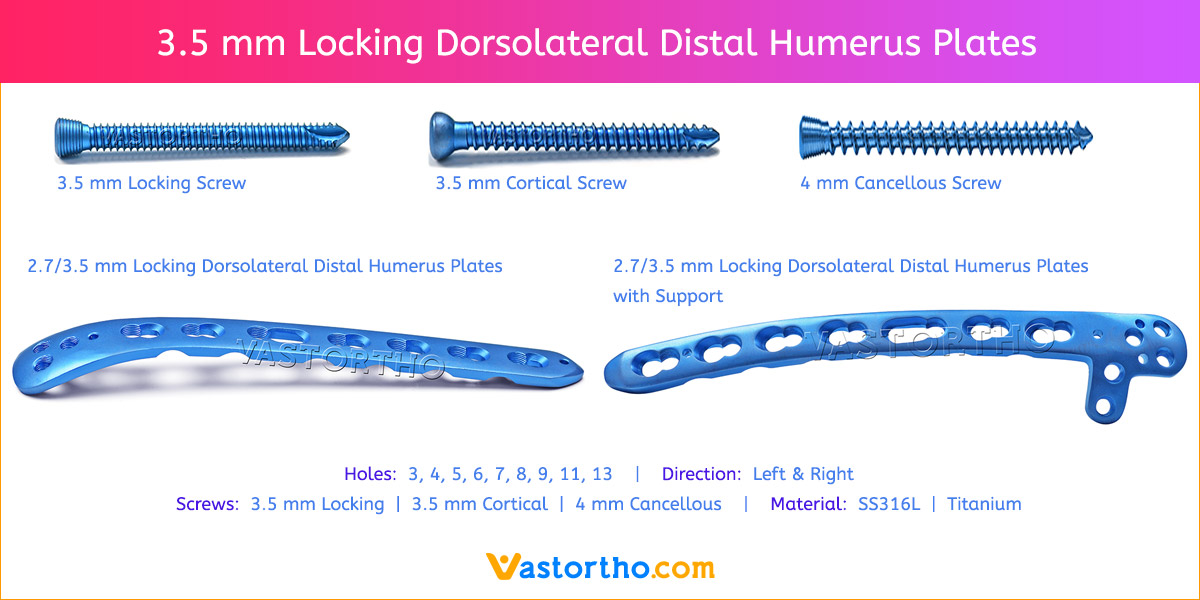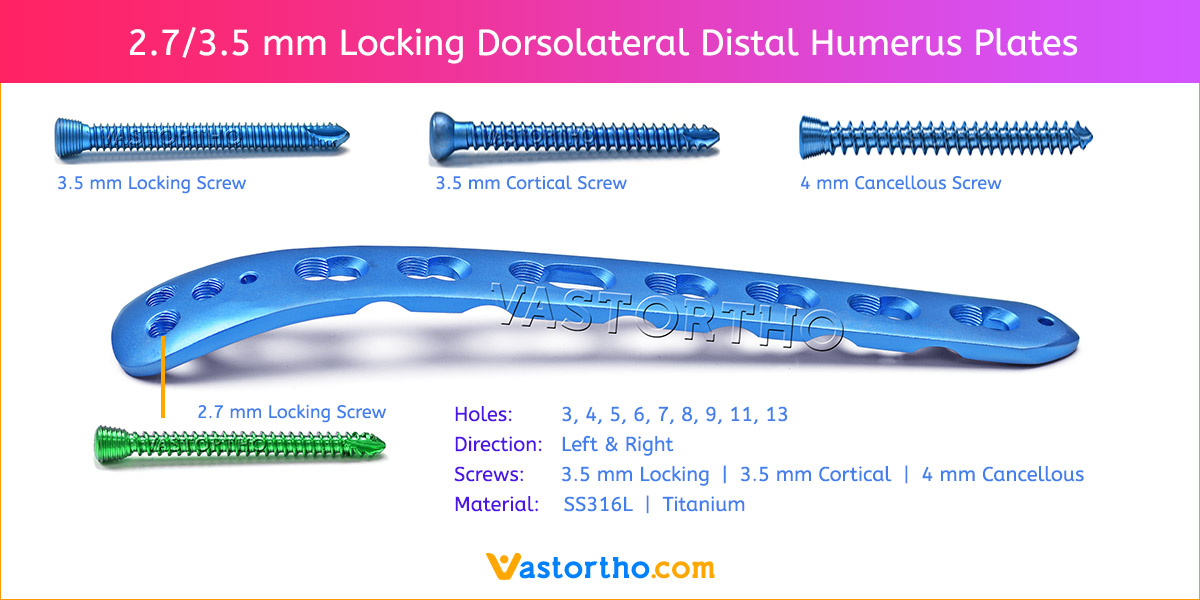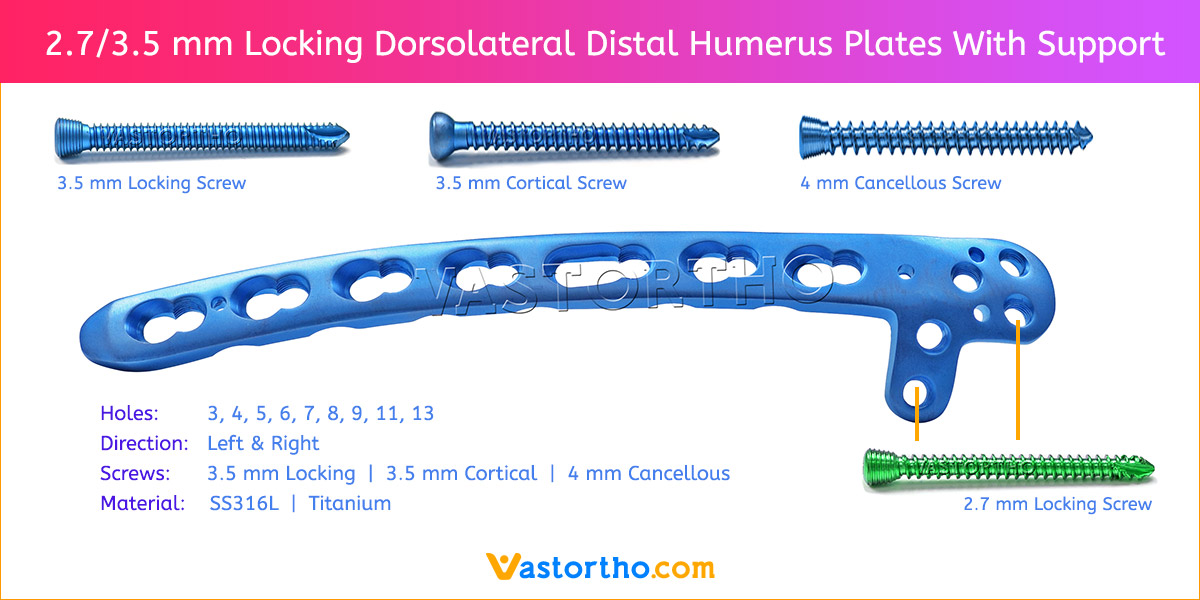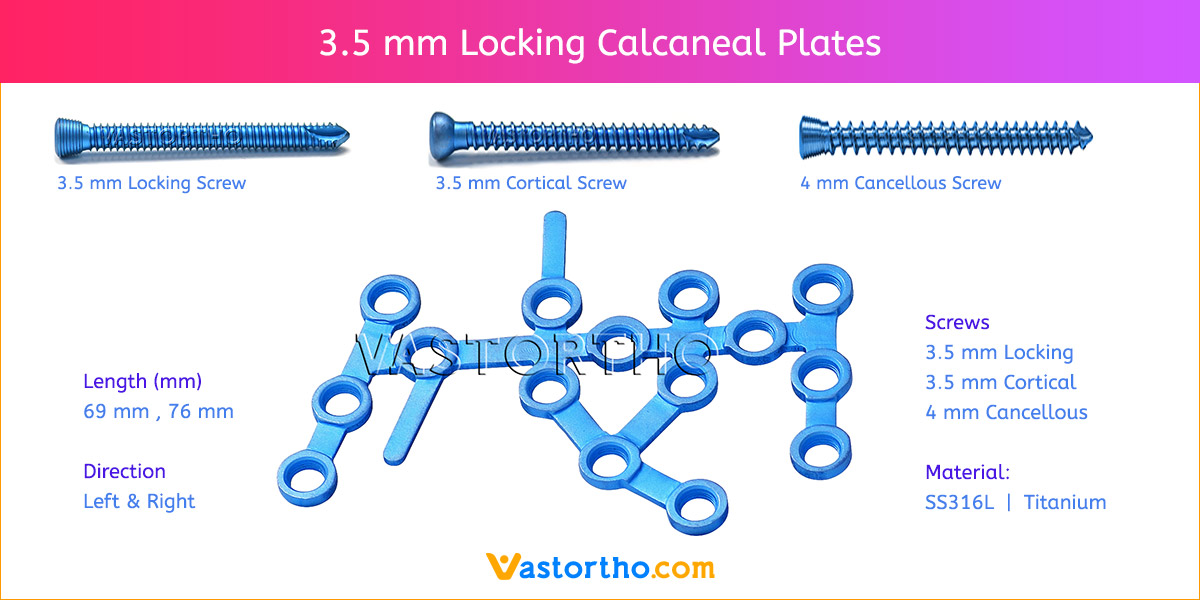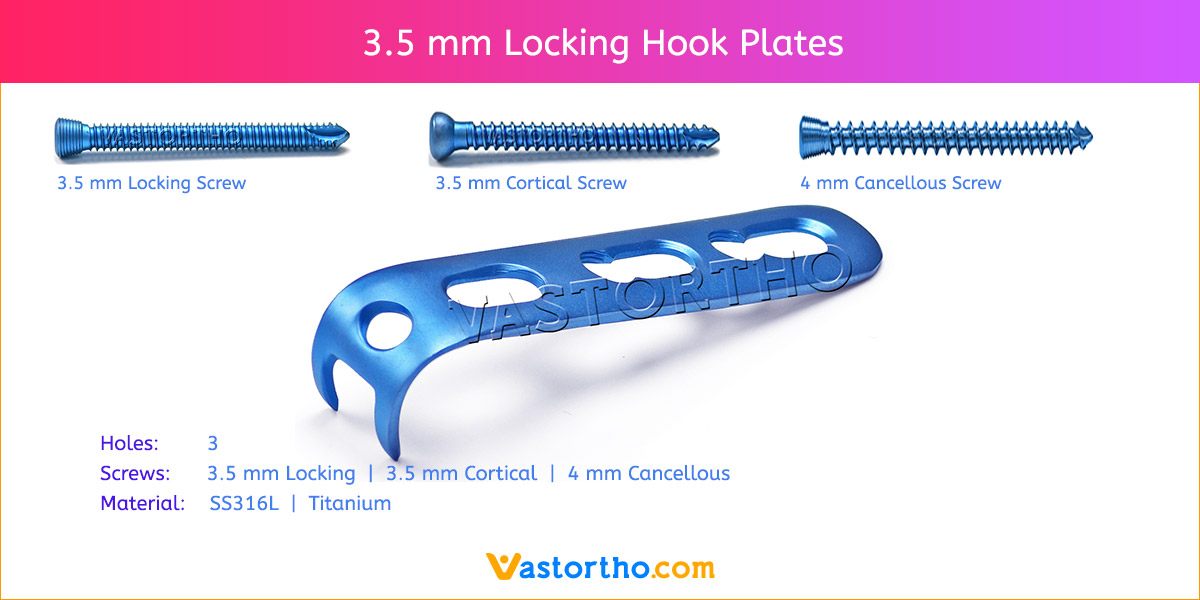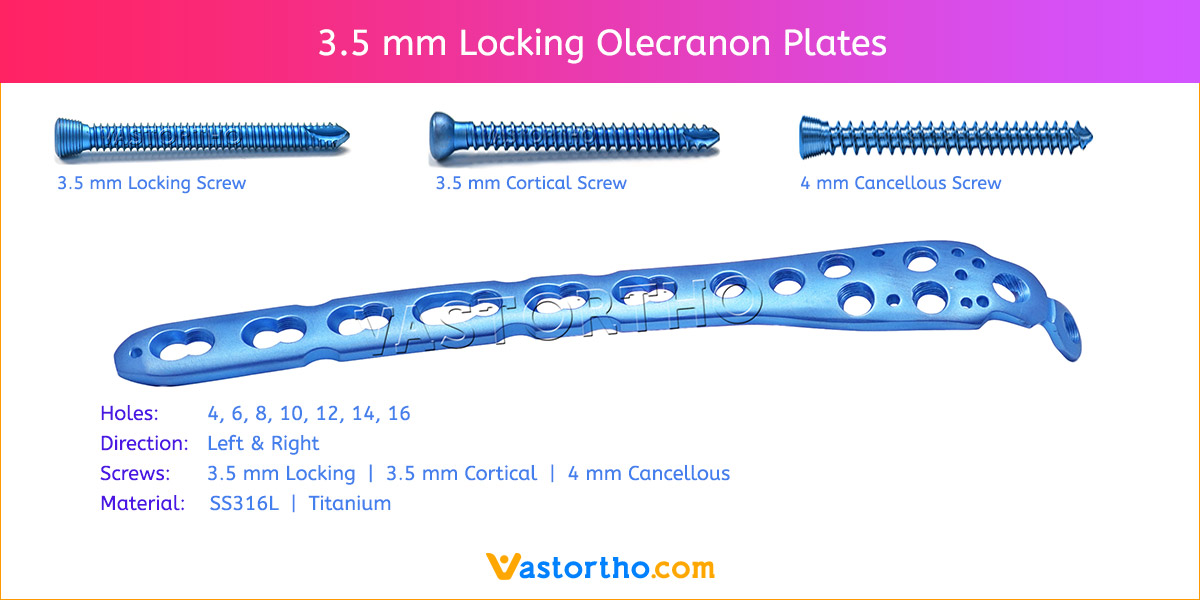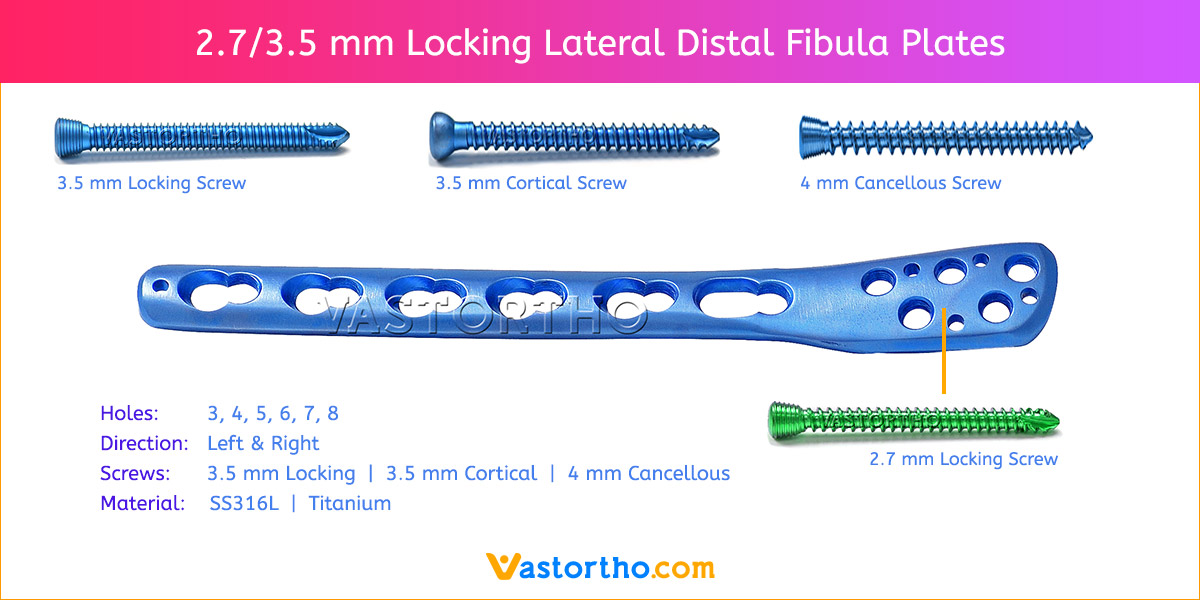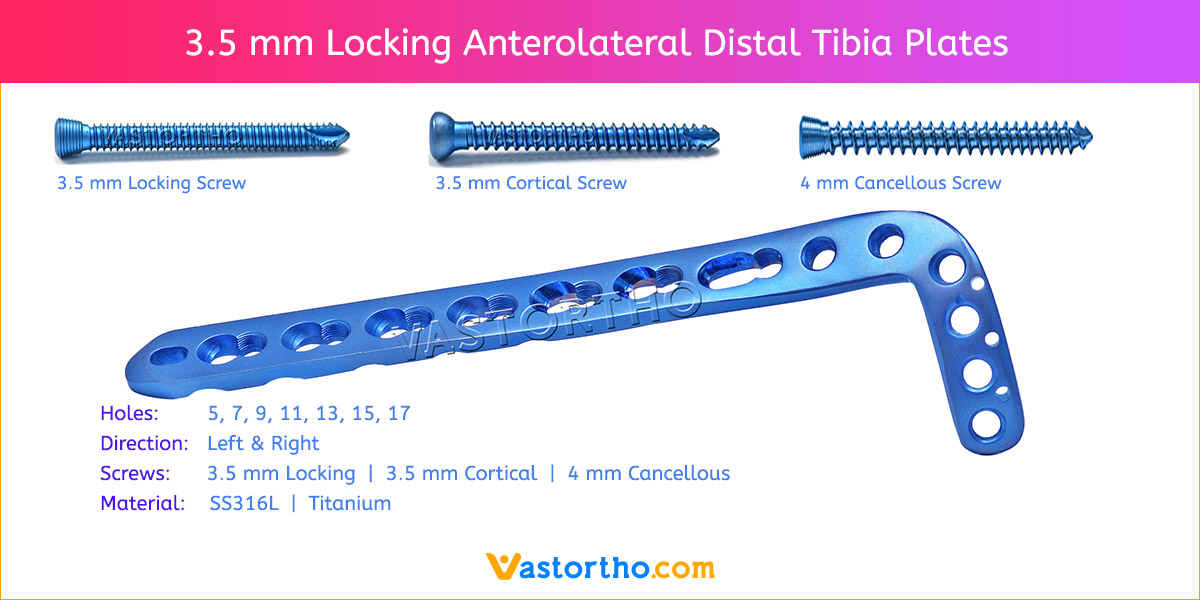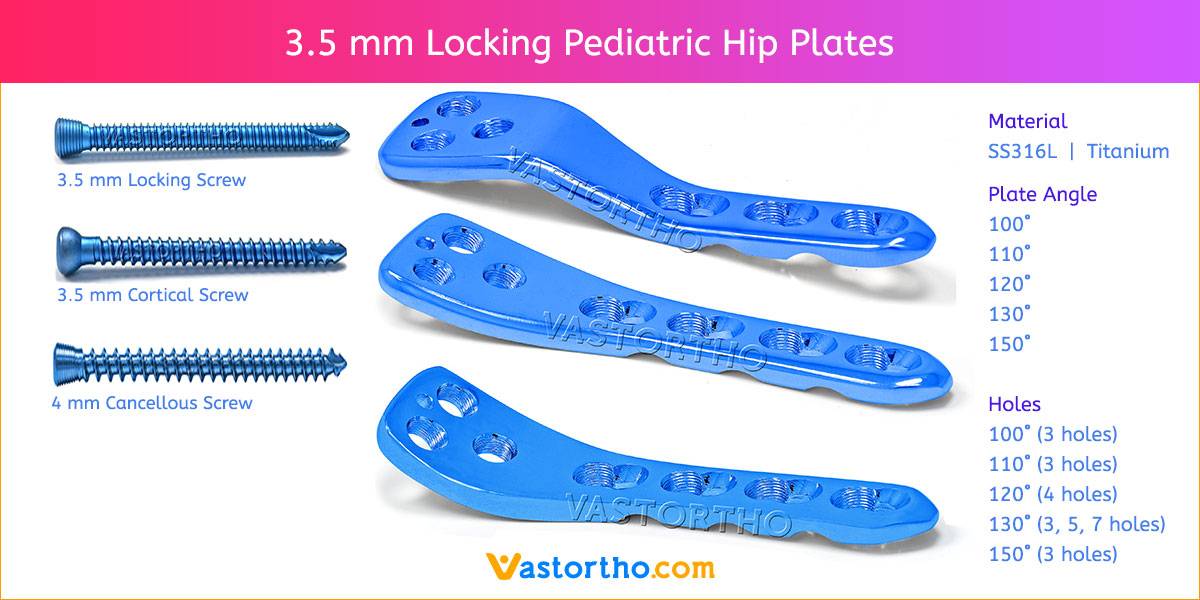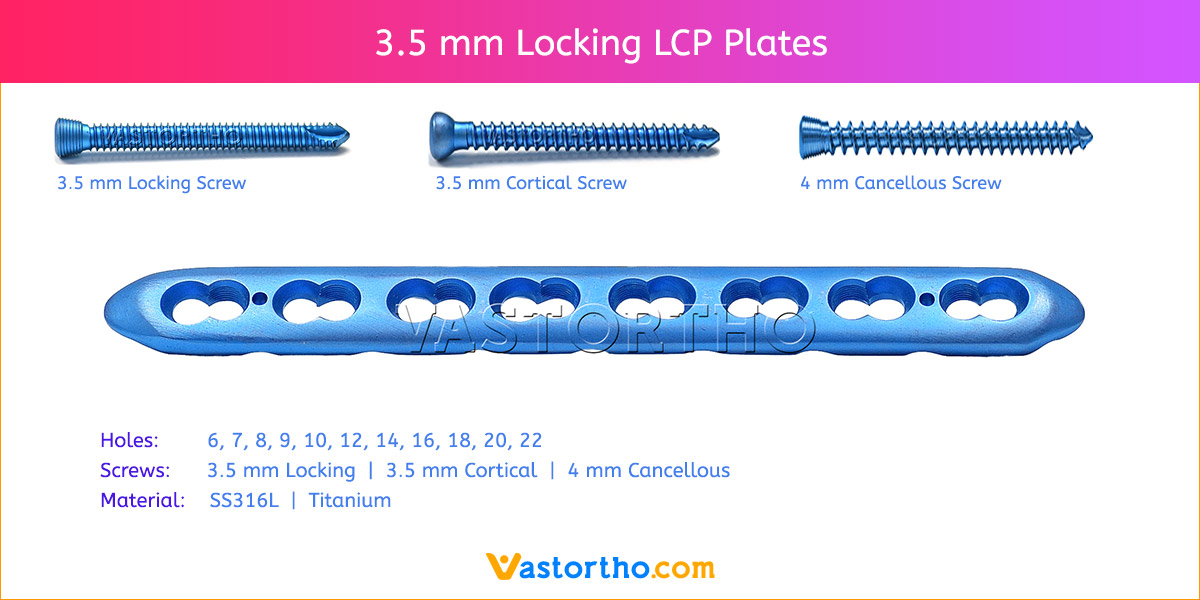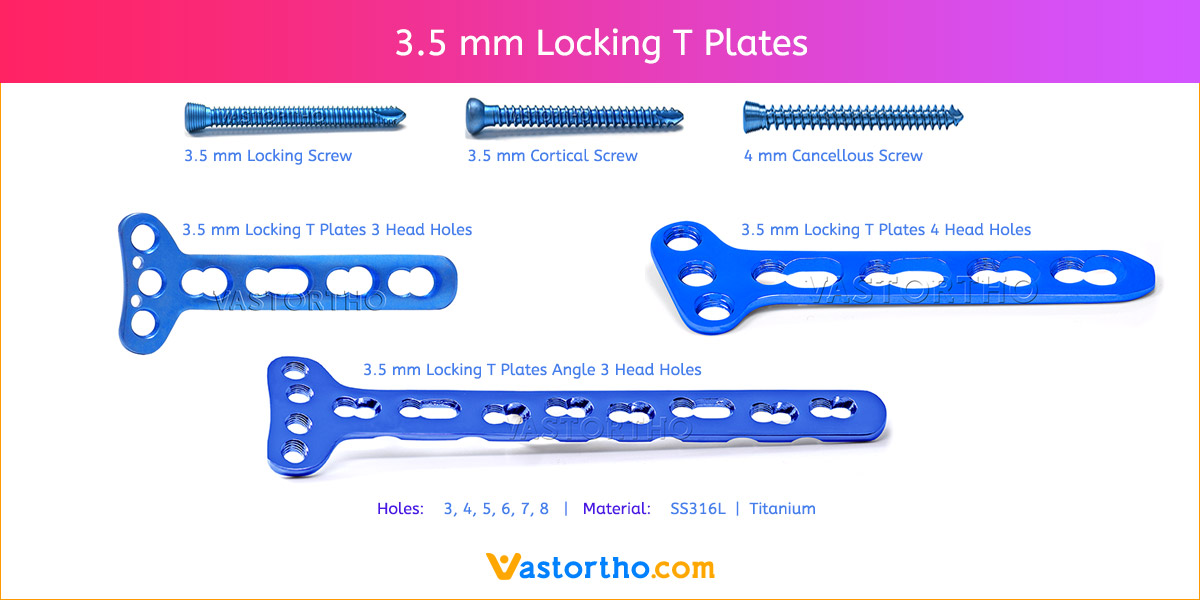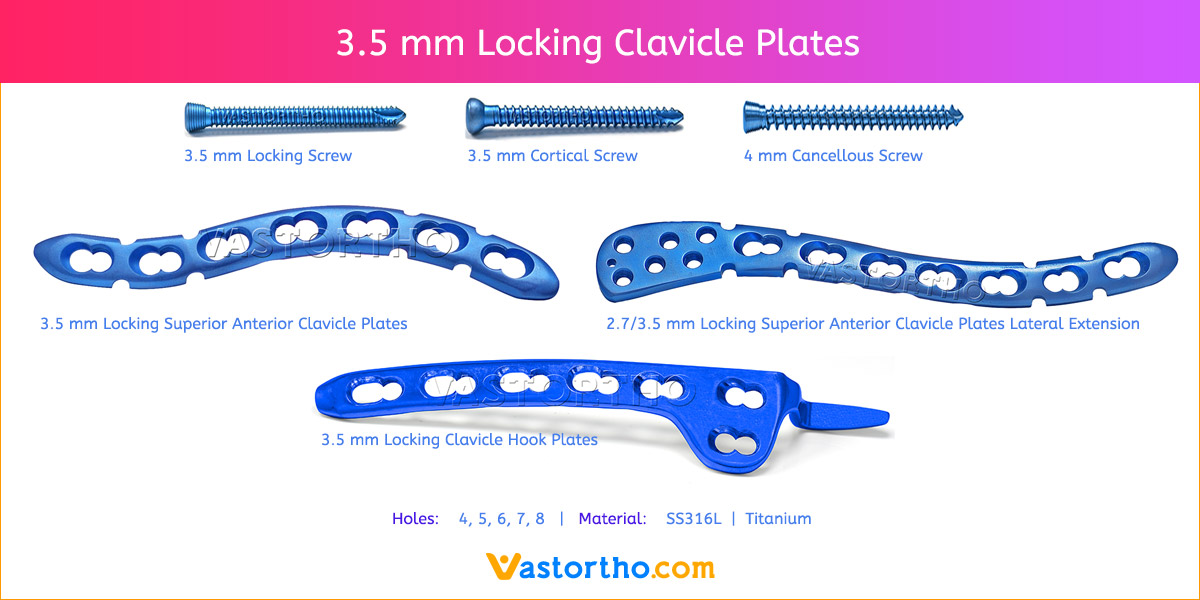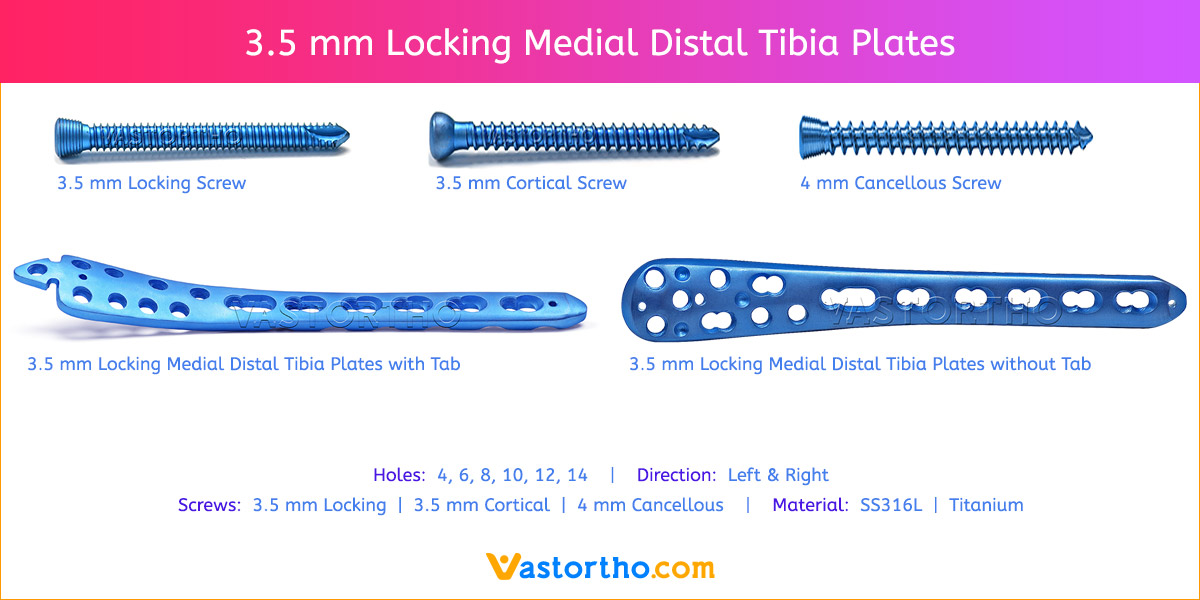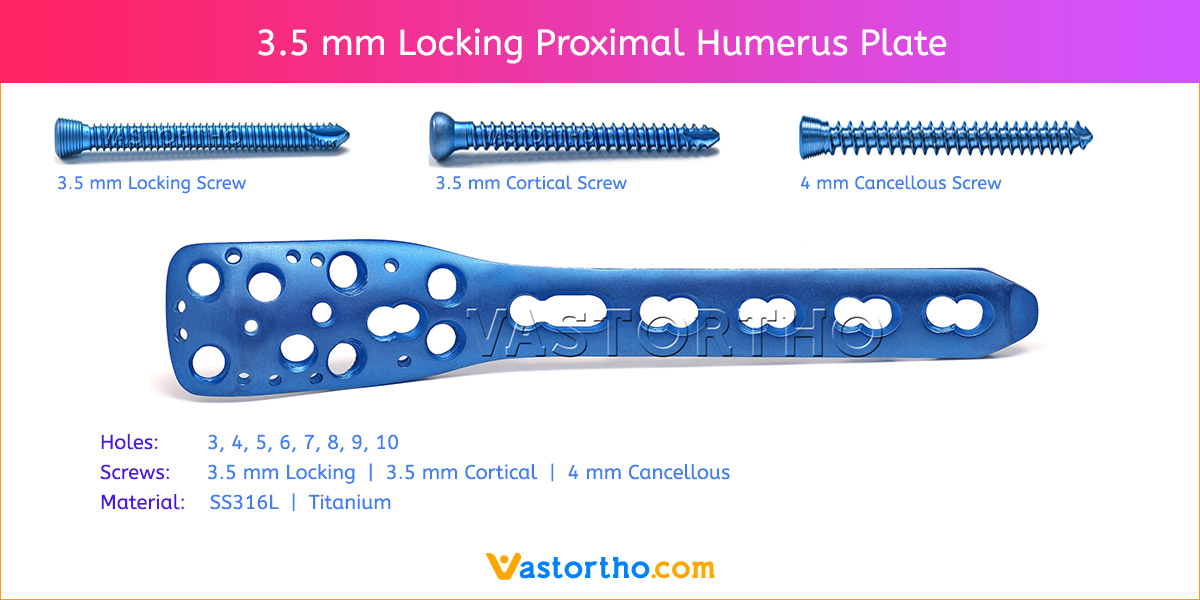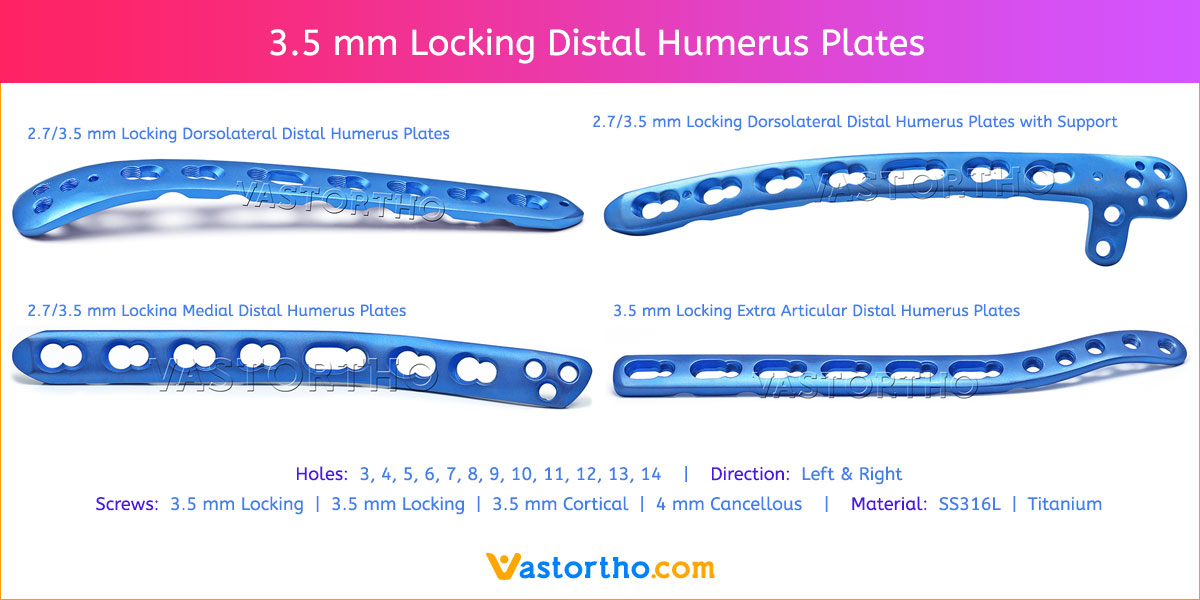3.5 mm Locking Reconstruction Plates Specification, Uses, Sizes & Surgical Instruments.
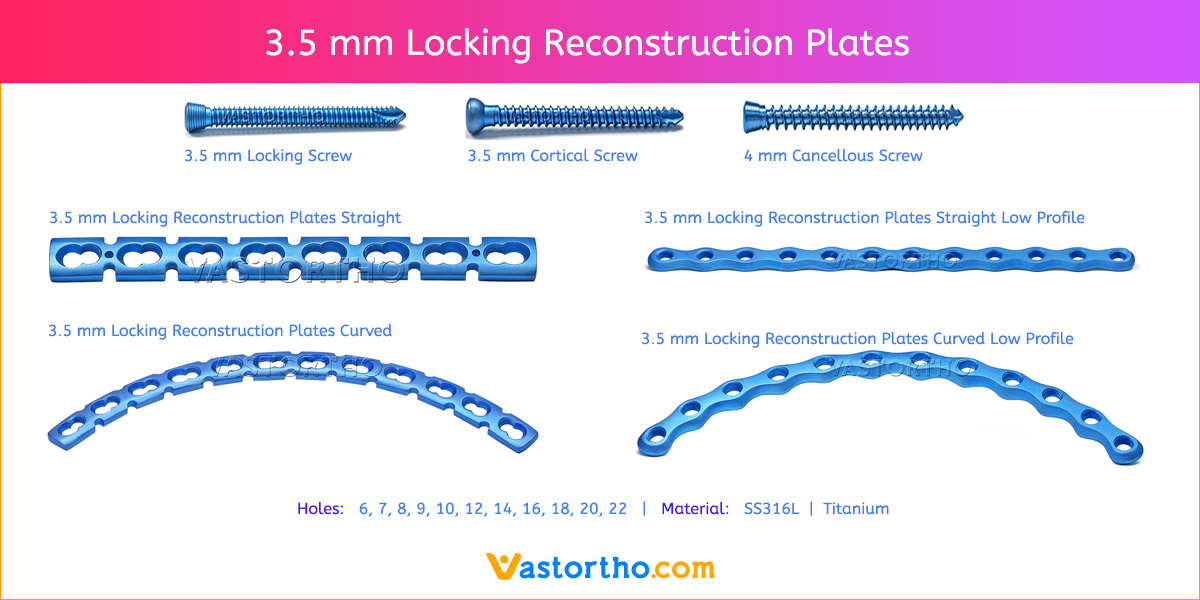
NAME Specification
- 3.5 mm Locking Reconstruction Plates contains 4 different plates. (1) Straight Plate, (2) Curved Plate, (3) Low Profile Straight Plate, (4) Low Profile Curved Plate
- Plates available holes are 4, 5, 6, 7, 8, 9, 10, 11, 12, 14, 16, 18, 20, and 22.
- Non Low Profile plates have combi holes. Combi holes allow fixation with locking screws in the threaded section and cortex screws in the dynamic compression unit section for compression. Low Profile plates have round holes.
- Non Low Profile plates holes accept 3.5 mm locking screws in the threaded portion or 3.5 mm cortical screws or 4 mm cancellous screws in the compression portion. Low Profile plates holes accept 3.5 mm locking screws or 3.5 mm cancellous screws in round holes
- Reconstruction Plates allow implant placement to address the individual fracture pattern.
- Limited-contact surface reduces bone-to-plate contact and helps to preserve the periosteal blood supply.
- Choice of different lengths of plate eliminates the need to cut plates.
- Pre-contoured plate to match anatomical shape.
- Available in both Titanium and Stainless steel.
- locking plate increases construct stability, decreases risk of screw back-out and subsequent loss of reduction. It also reduces the need for precise anatomic plate contouring and minimizes the risk of stripped screw holes.
- A complete Instruments Set is available for 3.5 mm Locking Reconstruction Plates. General Instruments are available for this plate such as Plate Bending Press, Plate Holding Forceps, Plate Bending Pliers, Bone Holding Forceps, Bone Elevators, Bone Cutter, Bone Nibbler, Depth Gauge, Sleeve, Screw Driver, Trocar Sleeve etc.
3.5 mm Locking Reconstruction Plates Uses
3.5 mm Locking Reconstruction Plates are used to fix the Pelvic, Clavicle and Calcaneal fractures.

